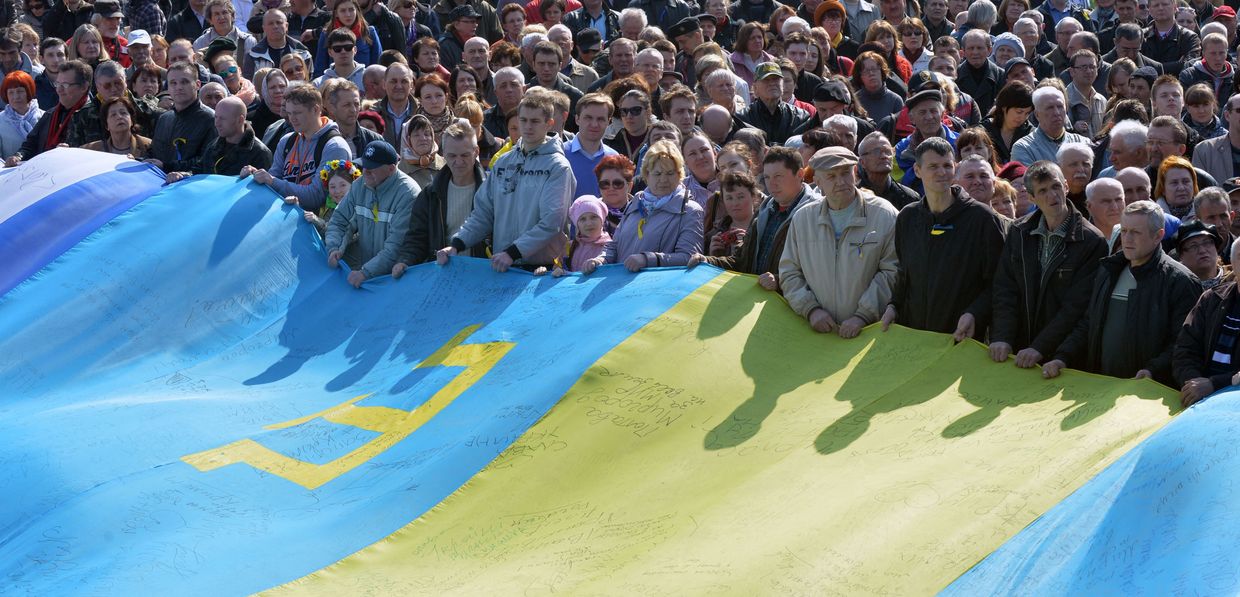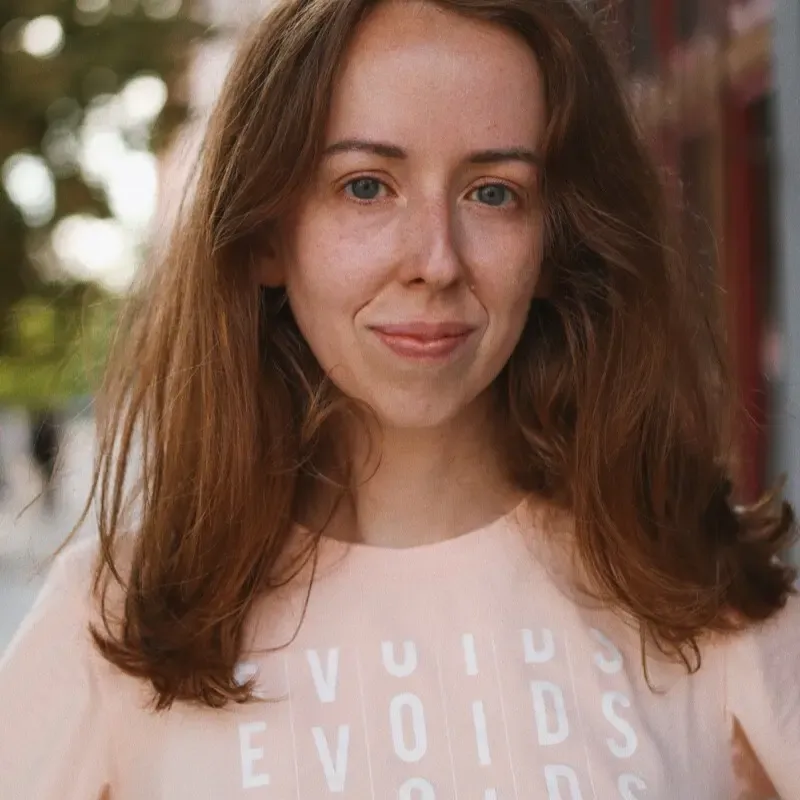Editor’s Note: The young people featured in this article are either quoted by first name at their family’s request for privacy reasons or, in the case of service members active on the front line, for their safety.
“The past two years have flown by. It’s hard to keep up with everything that has happened, so I haven’t been able to process how much I miss home yet,” Larysa, an 18 year-old Ukrainian who has been living in Vienna since the start of Russia's all-out war, told the Kyiv Independent.
The full-scale invasion has forced Ukrainians between the ages of 18-25 to make difficult, sometimes life-altering choices at a time when they should be enjoying the start of adulthood.
If they're not abroad trying to assimilate into a foreign culture, then they're either striving to carry on with some semblance of normal life in Ukraine or, in other cases, defending Ukraine’s sovereignty on the front line.
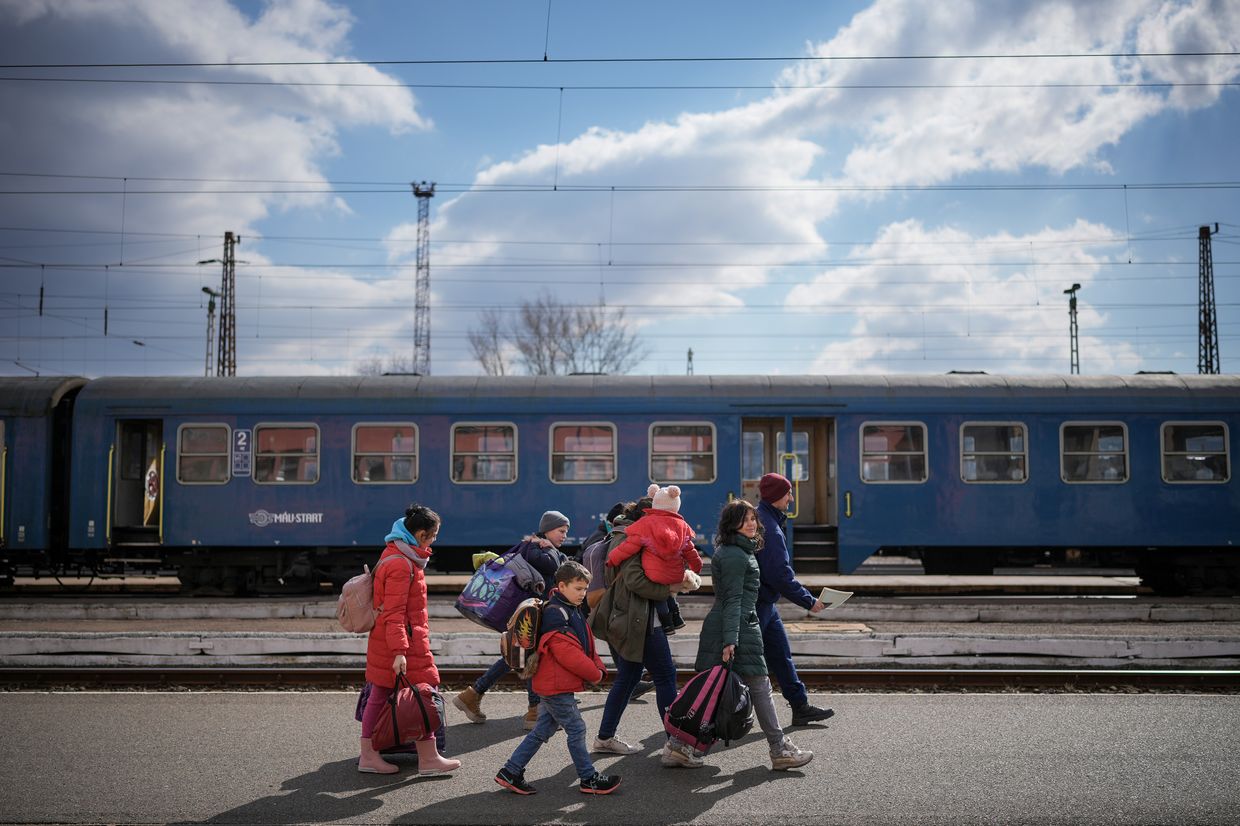
The frequent parallels drawn between Ukraine's artillery and trench-driven fight against Russia and the horrors of World War I make it tempting to liken Ukraine's young adults to the so-called Lost Generation that emerged during the first half of the 20th century. But the term “lost” can be a little misleading.
In this case, it might be more fitting to invoke the moniker bestowed upon this group in France later during the 1920s — the Generation of Fire. Those who survived, whether they had fought on the battlefield or endured wartime horrors as civilians, were united by their collective experiences.
Talking with Ukraine’s own “Generation of Fire” who came of age during the past decade of Russian aggression against their country reveals a keen understanding of the hand they’ve been dealt, despite moments of despair or near disillusionment.
“We’re faced with paying for the mistakes of previous generations,” Serhiy, a 21 year-old from Chernivtsi, lamented.
But whether they’re abroad, still in their home cities, or fighting on the front line, many of Ukraine’s young adults want to achieve great things that will benefit not only them but the future of Ukraine.
‘I’ll return to Ukraine someday’
Before Russia’s all-out war upended her life, Larysa was planning to study medicine in her home city of Chernivtsi.
“I used to put a lot more thought into my hopes and dreams for the future,” she said. “Now I have no idea what to expect.”
The thought of leaving didn’t initially cross her mind — like any normal teenager, she wanted to finish school and spend time with her friends. But then her family convinced her to leave in March 2022 and join her mother in Vienna, who was already there for work.
Chernivtsi was once part of the Austro-Hungarian Empire, so Vienna’s similar architectural style served as a reminder of home. But the language and cultural barriers during Larysa’s first few months in Austria made it difficult to settle in.
Talking to other young Ukrainians “was one of the things that kept me sane,” she said.
“I don’t even remember if we had a conversation that didn’t start with the war. It was mostly some sort of trauma bonding where we all just shared how we experienced that awful morning (of Feb. 24, 2022).”
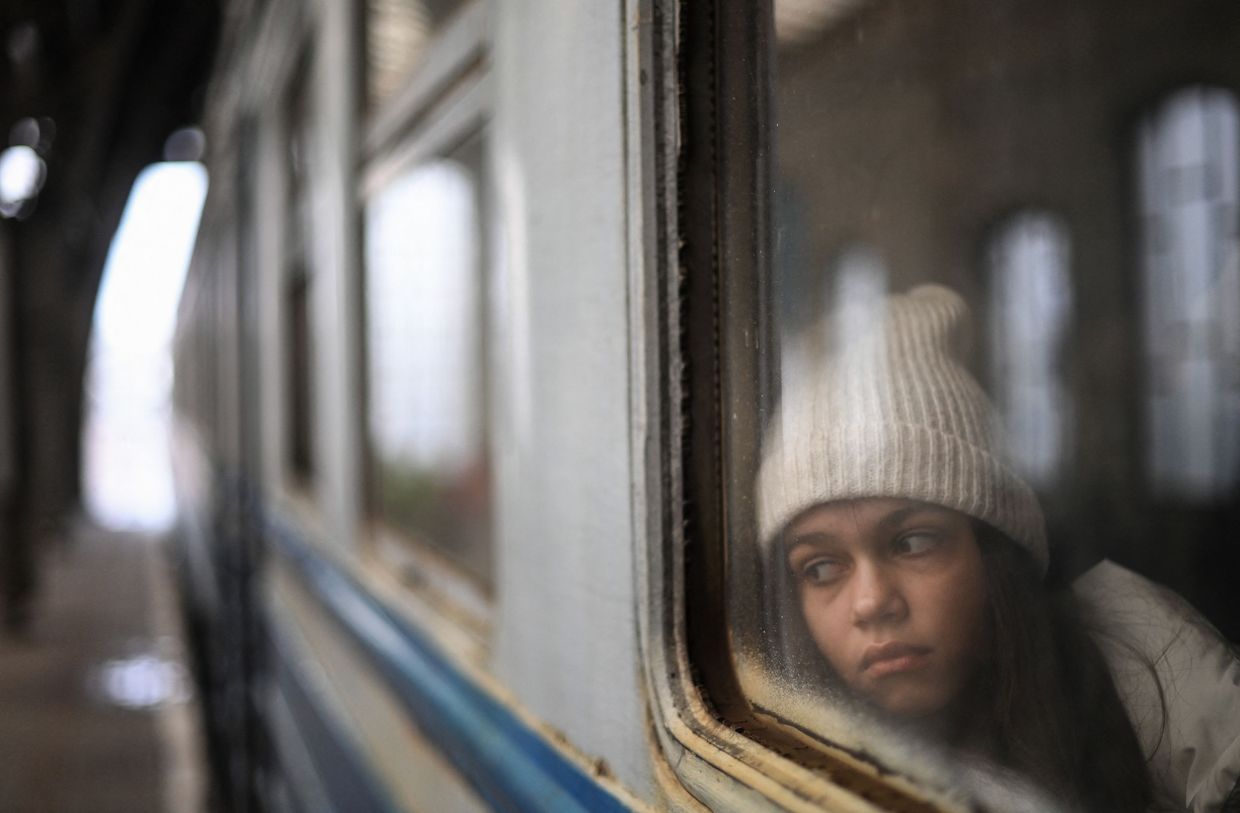
Larysa was just a child during the events of the EuroMaidan Revolution in 2014, which resulted in the removal of pro-Kremlin president Viktor Yanukovych, followed by Russia's illegal annexation of the Crimean Peninsula and the invasion of Donetsk and Luhansk oblasts.
War always lingered on the sidelines of her young generation's day-to-day life until it eventually consumed every aspect of it.
She doesn’t remember all those events from a decade ago clearly but there are certain moments that stick out in her memory, like when she helped her mother bake hundreds of cupcakes to raise funds for Ukrainian soldiers fighting in the east.
“I felt proud of myself that day,” she said. “I understood that I’d done something to help others.”
Larysa is in the process of completing coursework in German and physics, with plans to commence her university studies in Vienna. She hopes to use the knowledge she is acquiring abroad to make a positive impact upon her return to Ukraine — but for now her immediate future lies beyond its borders.
“I’ll return to Ukraine someday,” Larysa said.
“I want to do my part to make sure my country is independent and that future generations of Ukrainians have no reason to leave. I want them to be proud that they’re Ukrainians.”
‘Our generation will have to rebuild the country’
One’s university years are typically looked back upon fondly as a period of self-discovery that marked the transition into adulthood. However, many of Ukraine’s 18-25 year-olds have been deprived of this experience, first by the Covid-19 pandemic, and then by Russia's war.
Those who didn’t flee the country with their families or enlist in Ukraine’s Armed Forces after Feb. 24, 2022, find themselves performing a seemingly ordinary task — completing their university studies — under extraordinary circumstances.
University students’ primary concerns would ideally revolve around things like academic achievements, securing internships, or navigating romantic relationships. But since the start of the full-scale invasion, many of them have also had to worry about staying alive.
“The full-scale invasion has definitely inflicted a tremendous trauma upon me and other young people my age,” Kateryna, a 21-year old student who is finishing her undergraduate studies at Kharkiv National University, told the Kyiv Independent.
“It’s scary to think about the future. When you do, it’s all too easy to plunge yourself into a deep existential crisis, and once you manage to get out, you don’t want to go back. Under such circumstances, living day-by-day and drifting through life seems like the only viable option.”
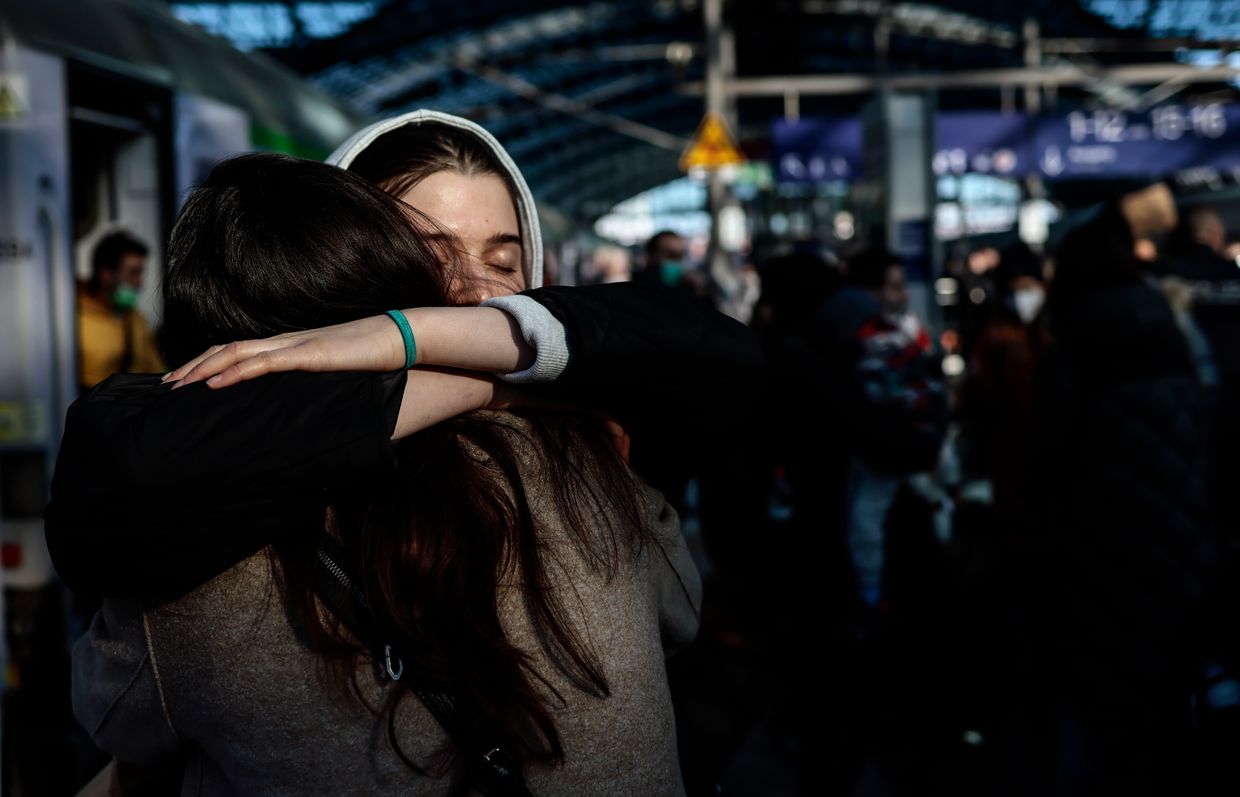
Lessons at Kharkiv National University, one of Ukraine’s top educational institutions, are now predominantly held online for security reasons. Kharkiv is frequently targeted by Russian missile and drone strikes due to its proximity to the Russian border.
While online lessons are the most viable alternative under such challenging circumstances, they have been a "significant drawback" for students and teachers alike, according to Kateryna.
“Many of us have lacked the motivation to study, as we found ourselves becoming different people no longer aligned with the majors we had originally chosen to pursue,” she said.
This has also led some students to reevaluate their priorities when it comes to choosing between work and education or settling for a career path different from the one they had originally chosen to pursue.
Day-to-day life continues as much as it can for Kharkiv’s university students, but as Kateryna noted, studying and socializing now often occur against the backdrop of repeated Russian attacks and the deaths of acquaintances, friends, or loved ones.
As one of Ukraine’s major cities in the east, Kharkiv became home over the past decade to thousands of Ukrainians who had fled the initial Russian invasion of eastern Donetsk and Luhansk oblasts. Kateryna recalled how there soon became more and more students in her school who proudly introduced themselves to other students as being from the Donbas region.
“Everyone in school knew the political stance of their classmates' parents because we didn't have our own political viewpoint back then — we mostly echoed what our parents discussed at home,” Kateryna said.
“I personally only fully grasped the scale of these events in the 11th grade during our history lessons. But even after that, the war didn't come to the forefront (of my life) — I simply knew it as facts, like historical events.”
Despite the hardships faced by Kharkiv residents, Kateryna can’t imagine leaving home.
“These are my people, my culture, my language, my identity,” she said. “I would really like to stay and live in my homeland.”
Heading westward to cities like Chernivtsi, university students don’t have to live with the immediate threat of shelling as their peers in Kharkiv do. But the specter of war remains a significant factor in their lives, especially for young men.
Serhiy is currently thinking about graduate school as he finishes up the final year of his undergraduate degree.
According to him, he had planned to continue his studies and obtain a graduate degree even before the full-scale invasion. But now he finds himself keeping a close watch on discussions regarding military deferment for higher education seekers.
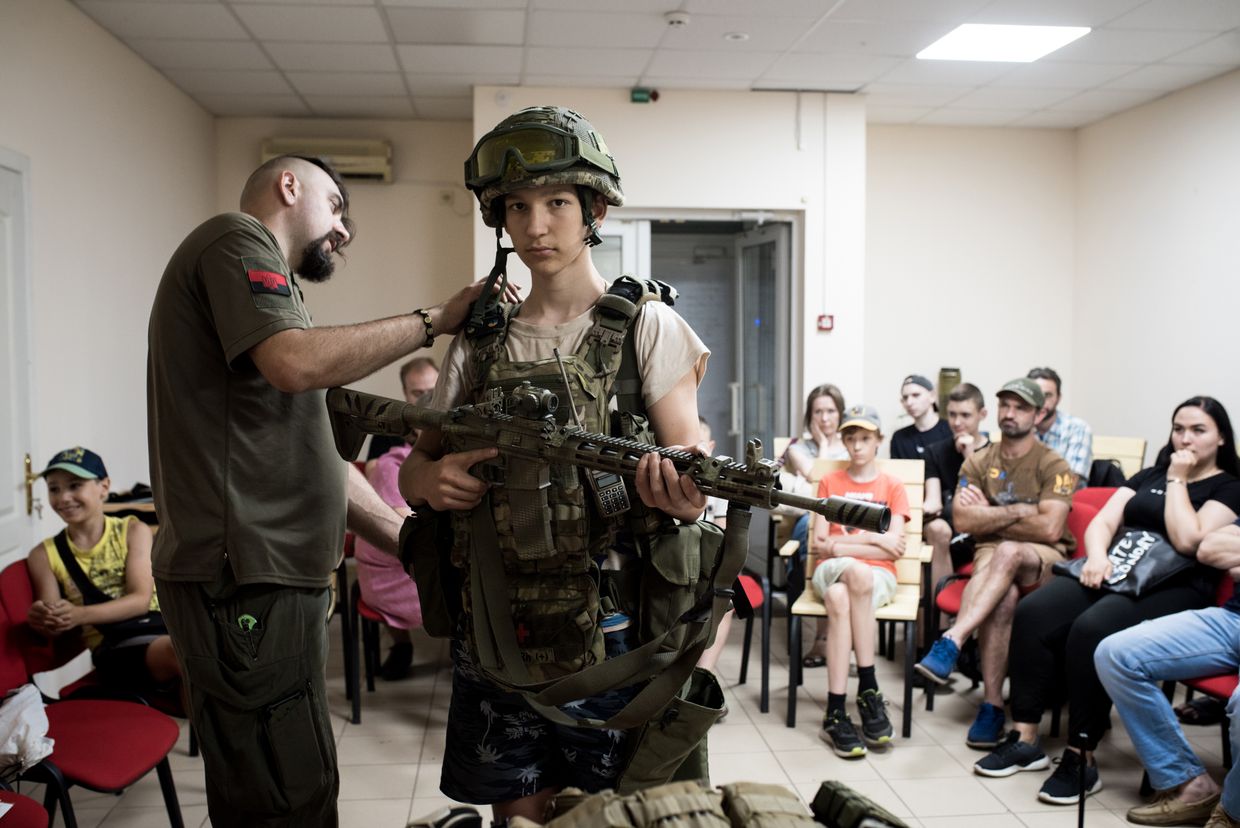
Young men under the age of 25 who have not undergone military training are currently not subject to mobilization. Serhiy and his friends have gotten stopped by military enlistment officers on the street before, but they’re able to avoid being taken to a military enlistment office as soon as they show documented proof that they’re students.
At the same time, they understand that two years have already passed since the start of Russia’s all-out war and there’s no clear indication as to when all this will end. They won’t be students forever.
“Our generation will have to rebuild the country,” Serhiy told the Kyiv Independent.
“That’s why, in my view, the state needs to focus on better protecting young people because emigration from Ukraine remains a huge issue. The demographic situation has only gotten worse due to the war, making knowledgeable young people even more valuable (to Ukraine’s future) with each passing day.”
Nobody from Serhiy’s immediate social circle has enlisted in the military. They’re trying to focus on internships and preparing for graduate school but war is still a topic that comes up often in their conversations. He says that he and his friends always try to donate to volunteer funds when they can and keep up-to-date about news from the front line.
Sometimes they also struggle to understand and maintain connections with the young people they know who left the country.
“It’s difficult to think that some of your peers are abroad and living life — sometimes just a few hundred kilometers away — without the same reality of war,” he said.
But he acknowledges that they’re much safer in Chernivtsi compared to other parts of Ukraine and young people elsewhere in the country might look at them the same way. Serhiy has other friends in more dangerous regions, like nearby Odesa. He always tries to check in on them when there’s news of missile or drone strikes.
“This is the fate we’ve been dealt, and we understand that we have to do everything possible so that future generations of Ukrainians don’t experience the same hardships.”
Survive first, plan for the future later
Even from a young age some Ukrainians “understood perfectly well who the Russians were and what they wanted from us,” a 21 year-old drone operator who goes by the callsign Kesha told the Kyiv Independent.
“Closer to the age of around 13 or 14 I realized that I would go to serve in the military, and maybe even have to take up arms and fight.”
According to Kesha, who is originally from Kyiv Oblast, he began preparing physically and mentally for this outcome years in advance by attending medical training sessions and drills.
After the full-scale invasion, Kesha enlisted in the Armed Forces of Ukraine. Many of his friends and classmates did the same, but as Russia’s brutal war enters its third year, “not so many are left,” he said.
A 23 year-old combat medic who goes by the callsign Dok also witnessed firsthand how fighting on the front line changed the lives of his friends and classmates. Many of them were killed, severely injured, or taken into captivity.
“To be honest, I don’t really want to see young people my age here,” he said. “It’s a bit hard to watch when someone in their 20s loses limbs or worse. They could have had their whole life ahead of them,” Dok said.

On the other hand, Kesha pointed out a shortage of the younger generation on the front lines, emphasizing their potential to "accomplish much more" than older soldiers.
“I would just like to know that (other young people) care about us (as they go through their day-to-day civilian life),” he added.
The undeniable impact all of this has had on their mental well-being notwithstanding, they persevere. There is no other recourse. The lives they put on hold are waiting for them back home, although they're uncertain about what civilian life might look like for them once their military service comes to an end.
“What do I want to do (after the war)? I don’t know… maybe I’ll go to the seaside first, and then see what life brings,” Dok said.
“Of course I’d like to start a family but for now that’s just a dream. I’m focused on the task at hand and we’ll see what happens next.”
Kesha said that he wanted to “live in peace and quiet in a small house outside the city,” with a wife and children someday.
“But that's all later, after victory...I have to survive first. And even that’s not so easy.”
Note from the author:
Hi, this is Kate Tsurkan, sharing an important culture-related story from Ukraine. Due to Russia’s ongoing genocide, most stories about Ukrainian culture and society will, unfortunately, be related to war for years to come. But Ukrainians are finding ways to persevere and it's important to share these stories.
If you liked reading this article, please consider continuing to support our reporting to see more like this.
